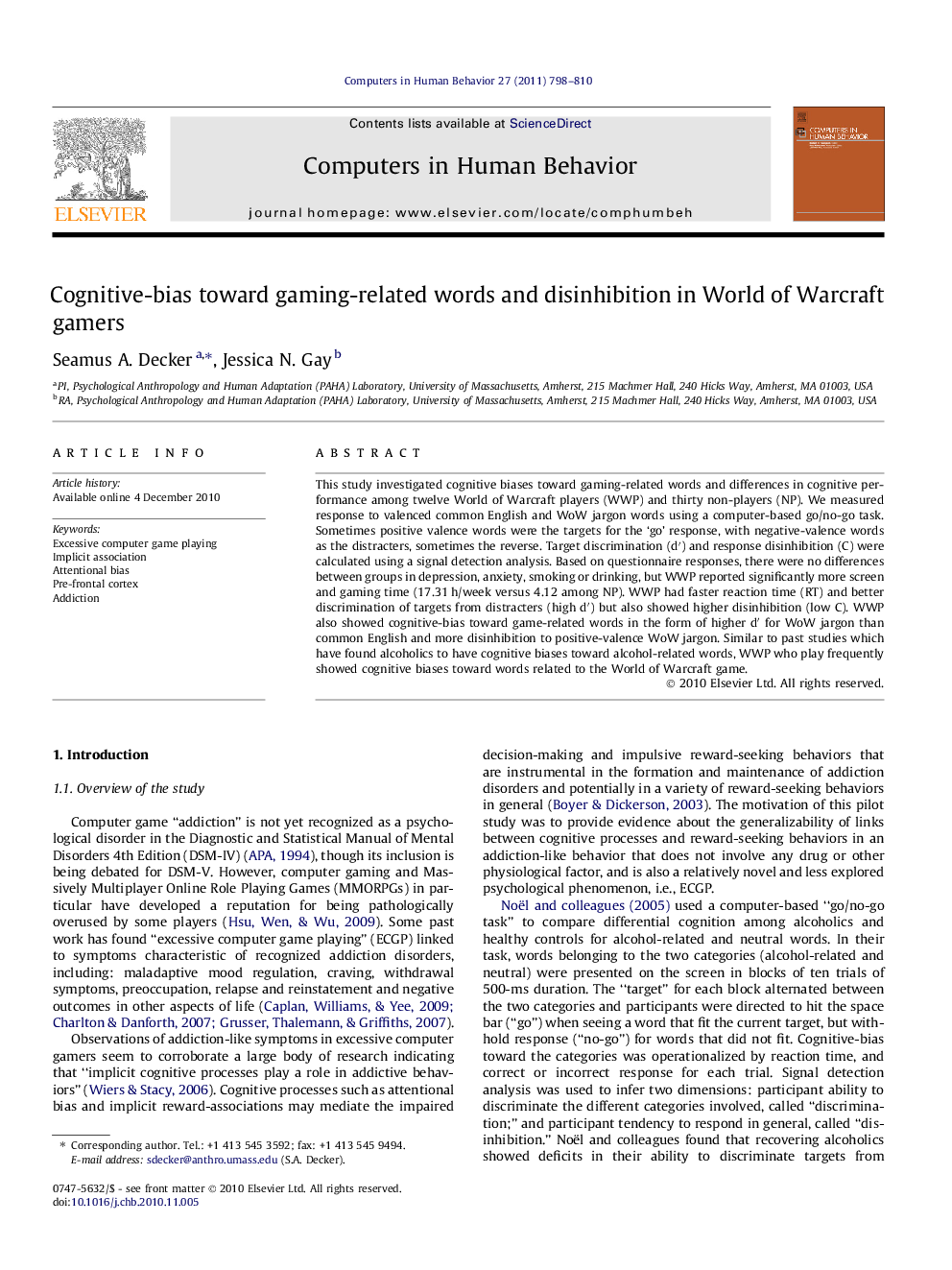| Article ID | Journal | Published Year | Pages | File Type |
|---|---|---|---|---|
| 351854 | Computers in Human Behavior | 2011 | 13 Pages |
This study investigated cognitive biases toward gaming-related words and differences in cognitive performance among twelve World of Warcraft players (WWP) and thirty non-players (NP). We measured response to valenced common English and WoW jargon words using a computer-based go/no-go task. Sometimes positive valence words were the targets for the ‘go’ response, with negative-valence words as the distracters, sometimes the reverse. Target discrimination (d′) and response disinhibition (C) were calculated using a signal detection analysis. Based on questionnaire responses, there were no differences between groups in depression, anxiety, smoking or drinking, but WWP reported significantly more screen and gaming time (17.31 h/week versus 4.12 among NP). WWP had faster reaction time (RT) and better discrimination of targets from distracters (high d′) but also showed higher disinhibition (low C). WWP also showed cognitive-bias toward game-related words in the form of higher d′ for WoW jargon than common English and more disinhibition to positive-valence WoW jargon. Similar to past studies which have found alcoholics to have cognitive biases toward alcohol-related words, WWP who play frequently showed cognitive biases toward words related to the World of Warcraft game.
